- Home
- Stephen Hunter
Soft Target Page 5
Soft Target Read online
Page 5
“Please, please, Jerry.”
She was sitting in a lake of blood. He was bleeding out, and the warm fluid ran from his wound into her dress and puddled around them on the floor.
“God, I love you so much,” he said, and then went still.
Not far from him a man named Charles Dougan was concerned about a bowel movement he could not prevent from occurring. He was ashamed. It was one thing to die, it was another to die with your pants full of shit. He didn’t realize that incontinence of one sort or another was a crucial feature of hostage situations, because no media ever dealt with it honestly. But the significant commonality among a large number of people held against their will was lack of sanitation for bodily fluids and that was simply an unfortunate biological reality.
He raised his hand.
A boy shoved his way over, roughly.
“I have to go to the bathroom,” he said.
“Shit in pants,” the boy said and turned away.
And so to his shame and horror, that’s what Charles Dougan did.
“I’m sorry,” he said to the young woman next to him.
“That’s okay,” said Sally Chan. “It doesn’t matter.”
There were at least a thousand, sitting cross-legged and head-down on the brick pathways of the Silli-Land amusement park. The rides, now still, towered over them. Absurd contrivances, they seemed yet more insane given the circumstances, but no one in the crowd much cared about the irony of being surrounded by thrill rides while being held at gunpoint under threat of death. And there was dead Santa on his throne, his body twisted, his hat on his ear, his head so askew only a corpse could sustain it, and that red spatter of blood V-shaped by the exit of the bullet on the satin plush of his chair. A loudspeaker issued the words “Jingle bells, jingle bells, jingle all the way,” but nobody paid much attention.
The armed boys wandered the perimeter, sometimes kicking their way into crowds to deal with issues. Their faces were impassive, but the guns, sinister black with ventilated barrels and wicked curved magazines, were terrifying. Nearly everyone had seen such weapons on the TV news and knew them to be the tool of the subhuman category of merciless terrorists, of which their owners were surely members.
The boys occasionally came together and laughed. Or one would vanish into the mall and return with, say, taffy apples or french fries, and all would eat. They drank a lot of Cokes and pretty much looted the Silli-Land refreshment center for shakes and hot dogs. One of them put a cowboy hat on, squishing it down over his shemagh headdress, and all helped themselves to new jeans and high-end New Balance or Nike sneakers.
Who was in charge? There didn’t seem to be a leader, but the boys weren’t quite random in their movement and more or less obeyed the rules of sound security, each knot of two hanging in that quadrant of the perimeter, keeping their guns oriented toward the seated hostages. At any time there were a great many guns bearing on the hostages, and all fingers on all triggers. Most of the hostages also believed the guns were “machine guns” and that a single pull would send a squirt of bullets out to take them down in batches. That concept alone was enough to keep them seated and quiet.
There was no chance at heroism. Any kind of mass rush toward a gunman was precluded by the impossibility of coordinating it and the immediacy of mass death it would ensure. The smell of burned powder still hung in the air. It was like an anti-aphrodisiac to dreams of action. To rise against the guns would be to die pointlessly in a mall, even while outside the rescuers accumulated.
From above it looked somewhat like the Bristol Speedway, Nikki Swagger thought. A huge, absurd structure decreed into the middle of nowhere, its odd shape touching automatically on chords of patriotism and sacrifice in all who saw it from the sky, serviced by a mesh of highways that came to it from the vague hinterlands. Now it seemed like race day: activity, activity, activity. Trucks kept pulling up, all of them spurting illumination that lit the twilight in incoherent splash patterns. From them spilled urgent men in black, with strange devices, who ran to cover and took up positions. The whole portrait pulsed with energy, purpose, dedication, high training, sophisticated deployment, yet nothing was happening. A fleet of red-white ambulances and other emergency service vehicles had gathered in one of the parking lots. Outside the ring, the highways were jammed with cars and trucks, even as more public safety teams tried to fight the rush and get through them to get close enough to assist.
Over her earphones she heard Marty back at the station.
“Nikki, the great Obobo is giving a briefing.”
“The first of many, I’m sure.”
“He didn’t say much, only that this appears to be some kind of violent takeover, shots have been fired, some people have been wounded, and the mall has been evacuated.”
“Duh,” said Nikki, “who didn’t know that? Does he have a time frame?”
“He just said law enforcement from all over the state is gathering on site, the feds are pitching in, but the situation is still hazy. He has no casualty numbers, no time frame, no declarations of policy, nothing but your usual tight-lipped five-oh bullshit.”
Nikki knew 5-0 bullshit—she’d covered cops in Bristol, Virginia, for five years—but this guy Obobo was a bullshitter beyond any she’d encountered. He was handsome, smooth, learned the reporters’ names, knew which cameras and what lights were used, and how to apply his own makeup. Her joke: “For a cop, he knows more about makeup than Lady Gaga.”
But this was her big op too, she knew, just as it was the ambitious Obobo’s. She’d worked as a news producer in Cape Coral, Florida, for a bit, and now she was a producer for WUFF-TV, Saint Paul. Scoops here, on this day, could get her to a network, to Washington or New York.
She gazed down on the scene from about two thousand feet in the WUFFcopter, as it was called on the air, the WUSScopter by station personnel, because everybody was scared to fly in it. Usually it covered traffic, but today, with Cap’n Tom at the controls, it orbited over the mall, while in the rear, Larry Soames and Jim Diehl worked cameras to send the images back to the station and thence to the greater Minneapolis area. She hoped Cap’n Tom wasn’t drinking today and cursed the United States Marine Corps, for whom he had once flown, because it was that connection that got him the job with the station manager, another ex-marine, and she chose not to acknowledge the fact that it was her connection to the Corps, via her father, that had probably gotten her the job too. In fact, the station was a kind of Marine outpost in the chilly upper Midwest.
“Nikki, I’d like to go up a couple thousand. It’s tricky this low,” said Cap’n Tom. Her paranoia tried to convince her that there was a slur to his words, but she couldn’t be positive.
“Tom, let’s hold it a little longer. We need good pictures for the feed and up higher it’s just blurs and lights. People need to see the damned place.”
“Nik, I agree with Tom. If we crash into KPOP we’ll be the lead on someone else’s live feed. You’d hate that.” That was Larry, older of the two camera jocks. He knew how fragile and precious life was, even if the concept hadn’t yet dawned on Nikki.
But she would hate to lead anybody else’s feed: she was ferociously competitive, so much so that it scared many people. In the station, she was called “Mary Tyler Moore from Hell.”
She looked out the window and saw a fleet, a mob, a density of news choppers hovering about her same altitude over America, the country, and America, the Mall. It was a tricky thing; the birds had to avoid updrafts and couldn’t predict blasts of prairie wind, so they tried to keep a good three hundred feet apart, but nearly everyone wanted the money shot, which was the state police communications trailer a few hundred yards east of the mall, itself surrounded by police and other official vehicles, in the same shot with the south entrance of the mall, with its famous AtM sign, plastered four stories tall, that was based on a cartoony simplification of the mall’s Americanized shape.
“Just a few seconds more, guys,” she commanded. “Marty. Are you
getting good pix?”
“The best, Nik, but don’t get yourself killed yet. If we need you to die for ratings, we’ll let you know.”
“Ha ha,” she said humorlessly. “Okay, let’s get out of here—”
“Something’s coming through,” said Cap’n Tom, and he plugged the emergency general aviation channel into the radio system.
“This is State Police HQ, I am asking all news helicopters to rise to and not wander below three thousand feet. We have incoming to the mall and I need you people out of the way so you don’t get hurt.”
“Hey, maybe something’s finally going to happen,” Jim, the younger, the more eager cameraman, said.
“We won’t be able to see jack from three,” said Nikki. “Larry, what lens are you using? Can you go to something zoomier?”
“You really lose a lot of resolution,” Larry said. “It’ll look like plastic toys in split-pea soup. But no one else will have much anyway.”
“Damn,” she said. “Okay, let’s do it.”
She felt the bottomless-pit sensation as Cap’n Tom elevated the craft against the pull of gravity and the structure beneath got smaller. From altitude, the mall stood in gigantic isolation, a wounded America whose sundered arteries spurted illuminated blood into the purple haze of the lowering sun.
It felt so strange, this proximity thing of the media. There they were, safe and toasty at 3,000 feet above the place, and inside, terrible dramas of life and death were being played out. Nikki and her cohort were there to witness and report, yet it was real life and real death at stake, nothing neat or melodramatic about it. And of course they knew that if they did well—what was the line from some old movie? “I think it’s safe to say you men are in for some promotions, medals, and positive recommendations in your personnel files!”
Then she saw it.
The cavalry? Not quite.
“Is that all?” Jim asked.
“Clearly, that’s not an assault,” said Nikki.
It was just the state police Bell JetRanger, rising from a parking lot and veering on the tilt toward the mall, all lights running hot and red and blinking.
“What are they going to do, scare the bad guys with the noise?” Larry said.
The bird, painted in the maroon-brown scheme of the Minnesota State Police, took a direct line to the mall and hovered six feet off its roof. Six young men in dark suits jumped out and began to deploy at the edges of the lake-shaped glass skylights that topped the atrium over the center of the mall.
“Six guys?” said Jim.
“Those aren’t guys,” said Nikki. “They’re snipers.”
4:00 P.M.–5:04 P.M.
Don’t have too much fun in there,” someone yelled merrily at Special Agent Jeffrey Neal.
He was one of the bright guys, tech-style, who worked in the Hoover Building, detecting mainly on a computer. He was an unbuttoner, a penetrator, a second-story man, a slippery little shadow in the night of cyberspace. It was said he’d get the department if he didn’t fuck up but that he would fuck up, as guys with his IQ could be counted on to get busted for falling in love with escorts or acquiring a drug habit or coming to believe Ancient Grecians were communicating with him through his Grecian Formula hair coloring brush, something self-destructive that for some reason always draws the hyperintelligent into its flame.
“Ha ha,” he commented from within the shroud.
The shroud was a canopy draped over his second computer, which was connected to the Internet. It was next to his unshrouded non-Internet-connected computer, and the two machines and two monitors crowded his small cubicle in the Computer Services Division of the Pennsylvania Avenue monstrosity. The shroud on the net beast kept inquiring eyes out and political correctness at its highest level, for one had to dip inside it and only in dark secrecy encounter the very special hell known as the universe of child pornography.
It was dues you had to pay, even if nobody wanted to.
But Neal had three months left to go on his six-month tour on the Child Porn Task Force, which meant he went home each night feeling like a used condom. His own sex life, mild as it was, had been destroyed. The things people did to kids, the sick worms in their heads that compelled them to conjure new variations in torment, abuse, piercing, and posture. You wanted to reach through the screen and crush skulls, watch the bastards—not just fat white guys in their forties, but amazingly handsome people of all races, ages, demo groups, normal-looking people, even distinguished-looking people—bleed out in the gutter, whimpering. But he soldiered on, knowing that at the end of—
“Neal, hey, wake up in there, hot one in from HQ. There’s some kind of mall takedown in Minneapolis and we have to get into the computer system.” It was his supervisor, Dr. Bob Benson, SA and PhD.
“He’s in the system?” Neal asked.
“Is he ever. He’s got a thousand hostages, he’s locked down the mall, no local agencies have been able to penetrate. Guess on whose plate it is now.”
“On it,” said Neal.
“Get upstairs ASAP for the briefing, then get down here and get your action into gear. This baby’s so hot it’s steaming. No more kiddie rape.”
Neal rose quickly, started to dash out. But he turned back, reached out, grabbed the shroud of his enforced disgust, and ripped it down. It was sort of like John Wayne throwing off the rifle scabbard as he saw the burning ranch before him in The Searchers. It meant he was going to war.
On the way over, Kemp had been on the phone with Washington the whole time. Subject: politics. Tone: unpleasant. Reality: discouraging.
“You have to play this very well, Will,” said Assistant Director Nick Memphis. “He will not want to give up command, and if you backstreet him, he will go to the media and they love him, you know that.”
“So how the hell do I play it?” said Kemp.
“I wouldn’t buck him,” said Nick. “Let him come to you. He has to.”
“He better come to me, goddammit,” said Kemp, the SAIC of the Minneapolis Office, a vet of several task forces including a long spell in Texas with ATF and Drug Enforcement that got him shot in the leg. “He doesn’t know a goddamn thing.”
It was true. Colonel Douglas Obobo really hadn’t done anything. His career was primarily a phenomenon of showing up, giving speeches, accepting awards, then moving up to the next level, as assisted by the superb public relations and career advisor David Renfro, who’d spent years working the trade, fronting at various times for the New York chief of police, the San Francisco police commissioner. Renfro had met Obobo when both worked for the Senate committee and had been with him ever since.
“Don’t say that to anybody,” counseled Nick. “Keep it to yourself. Publicly you love and respect him as does everyone in the Bureau. He’s the One, we all know that.”
“What a mess,” said Kemp, and both men knew what he was talking about. Rumors were rife in Washington that Obobo’s next big job would be as director of the FBI, the first black man, the youngest to ever get the job. So both Memphis and Kemp knew that whatever decisions they made today might come back to shadow them if they ended up working for the guy somewhere down the road.
“Assistant Director Memphis, if I think he’s endangering people, I have to act. I have to. That’s the bottom line, you know that.”
“Look, all this may be premature. The situation may not be as bad as we think or it may resolve itself peacefully without force, and everybody will walk away unscathed. If the worst comes, he has good people in the Minnesota State Police to advise him.”
“If he listens to them.”
________________
Three Ford Ranger XLT modified trucks, black with black glass, pulled into the area under the on-off rhythm of red-blue and rolled to the state police trailer.
Kemp leaped out, in black Nomex SWAT gear, with an MP5 sub-machine gun on a sling across his chest and a Glock .40 in a shoulder holster strapped across his body armor. Three of the other seven men were equally equipped, but the
four snipers unlimbered large, awkward gun cases from the back of each big SUV.
“Special Agent Kemp, I’m surprised you don’t have more manpower,” said Obobo, in full uniform, with his shadow Renfro close at hand.
“Colonel Obobo, we’ve got all our people coming in. But it’s a tough thing, logistically. More will arrive shortly.”
“Of course,” said Obobo. “Now, let me brief you quickly. I’ve got Jefferson on assault planning, I’ve got Carmody handling logistics, I’ve got Neimeyer trying to coordinate with the medical people. I will be handling negotiations myself. But of course we need to get an investigation going and that’s where I see the Bureau making its contribution. I’ve decided to turn over the investigation—the witness interviews, the collation of evidence, the records and forensic database checks, all that—to the Bureau.”
“Sir, I’m sure you realize by federal statute the Bureau is obligated to take over any incidents involving terrorism.”
“Of course and absolutely,” said Obobo, smiling broadly, putting a big hand on Kemp’s shoulder. He was tall, towering over most, and had an especially beguiling style, even in disagreement, so it was hard to dislike him. “But this situation has not clarified, I think you’ll agree, and we’re not sure with whom we’re dealing. There is no operative intelligence suggesting foreign involvement, other than unsubstantiated reports of some Arabic-styled scarves. I’m sure you agree, that’s not enough to make a determination. This could be any group of nuts. As I’ve already organized my teams, I think it’s more sound for me to retain command. Of course if and when evidence develops that clarifies the situation, and if it’s within parameters, I’d be happy to make another disposition. But you understand, of course, and I know you agree, that turf is less important than teamwork. I know I can count on you to work with our initiatives and within our framework.”
“Yes sir. I’m hoping you’re open to advice from my people. We do have a lot of experience in these matters.”

 Point of Impact
Point of Impact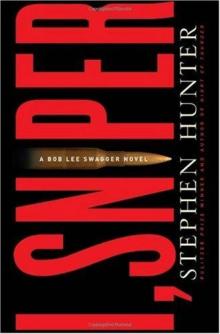 I, Sniper
I, Sniper Havana
Havana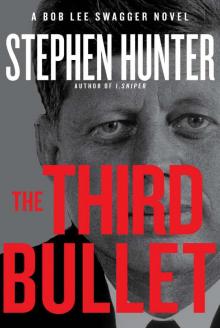 The Third Bullet
The Third Bullet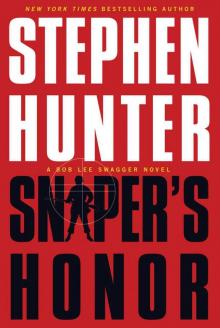 Sniper's Honor: A Bob Lee Swagger Novel
Sniper's Honor: A Bob Lee Swagger Novel Dirty White Boys
Dirty White Boys The 47th Samurai
The 47th Samurai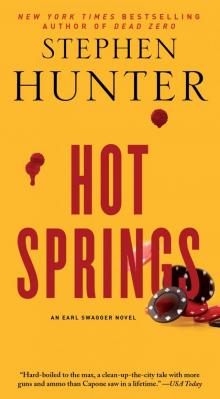 Hot Springs
Hot Springs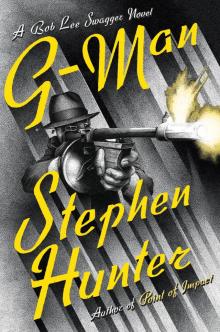 G-Man
G-Man Black Light
Black Light Time to Hunt
Time to Hunt The Day Before Midnight
The Day Before Midnight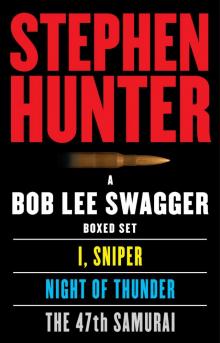 A Bob Lee Swagger Boxed Set
A Bob Lee Swagger Boxed Set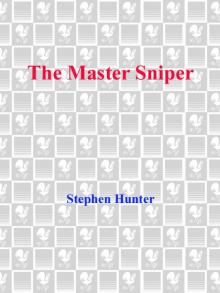 The Master Sniper
The Master Sniper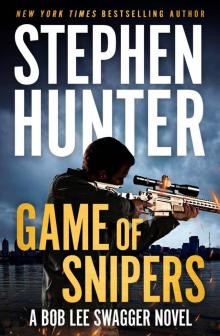 Game of Snipers
Game of Snipers Tapestry of Spies
Tapestry of Spies Citadel
Citadel The Second Saladin
The Second Saladin Stephen Longacre's Greatest Match
Stephen Longacre's Greatest Match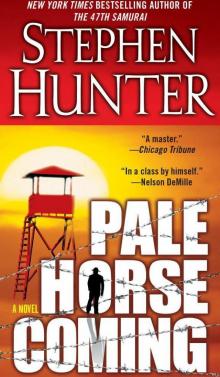 Pale Horse Coming
Pale Horse Coming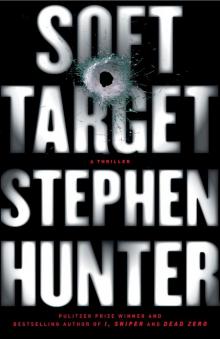 Soft Target
Soft Target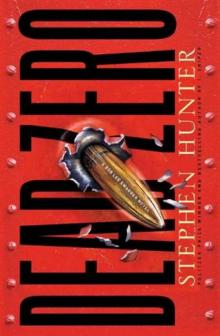 Dead Zero
Dead Zero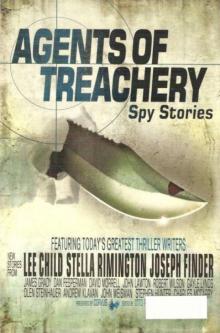 Casey at the Bat
Casey at the Bat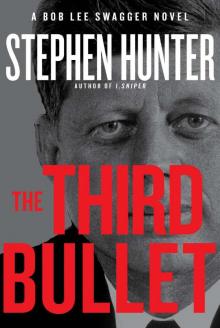 The Third Bullet bls-8
The Third Bullet bls-8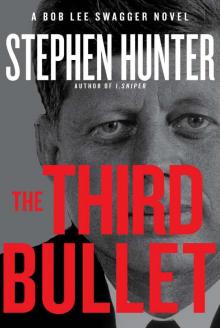 The Third Bullet: A Bob Lee Swagger Novel
The Third Bullet: A Bob Lee Swagger Novel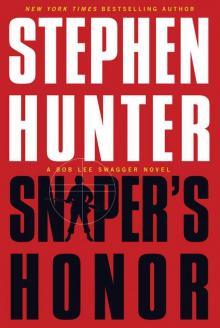 Sniper's Honor
Sniper's Honor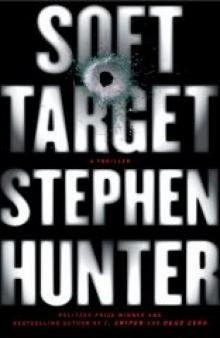 Soft target rc-1
Soft target rc-1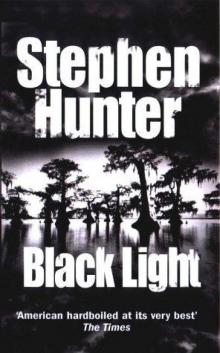 Black Light bls-2
Black Light bls-2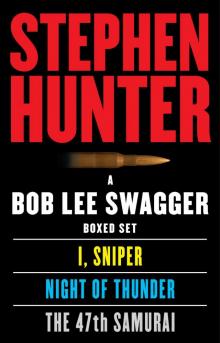 A Bob Lee Swagger eBook Boxed Set: I, Sniper, Night of Thunder, 47th Samurai
A Bob Lee Swagger eBook Boxed Set: I, Sniper, Night of Thunder, 47th Samurai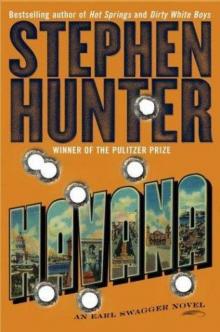 Havana es-3
Havana es-3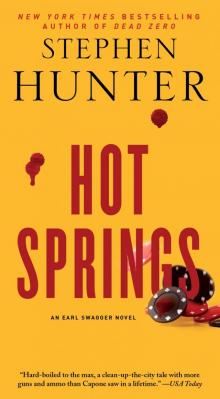 Hot Springs (Earl Swagger)
Hot Springs (Earl Swagger)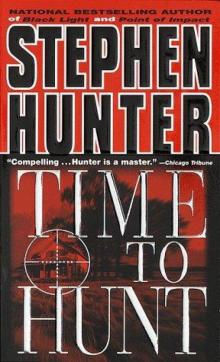 Time to Hunt bls-1
Time to Hunt bls-1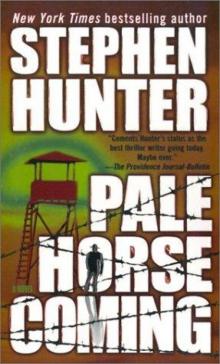 Pale Horse Coming es-2
Pale Horse Coming es-2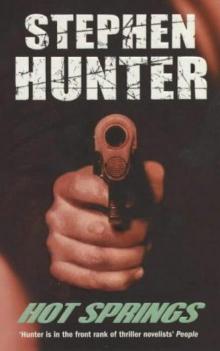 Hot Springs es-1
Hot Springs es-1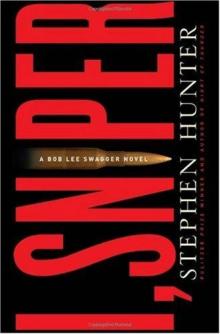 I, Sniper: A Bob Lee Swagger Novel
I, Sniper: A Bob Lee Swagger Novel